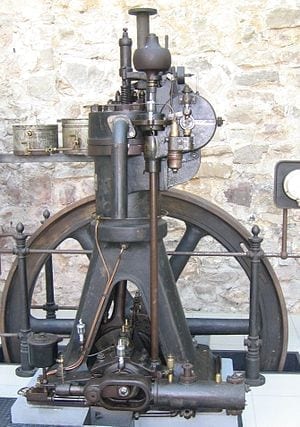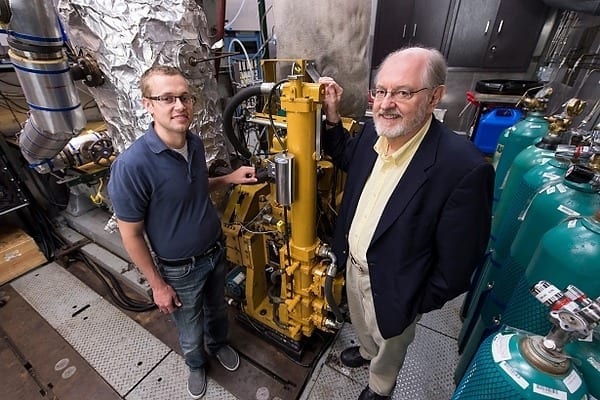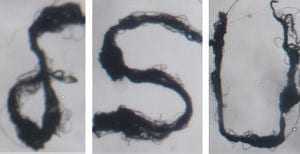Automotive technology: Electric and hybrid cars are being given a run for their money by an unlikely competitor: a range of advanced diesel engines that set new standards in performance and fuel economy
TESLA MOTORS has had great success with its Model S luxury electric car, which has outsold its petrol-powered equivalents since being launched in America last year. Even so, the prospects for battery-powered vehicles generally may never shine quite as bright again. Having had their day in the sun, they may soon be eclipsed by, wait for it, the diesel engine.
American readers will find this idea particularly hard to swallow. Surely not that dirty, noisy, smelly, lumbering lump of a motor that was hard to start in winter? Certainly not. A whole new generation of sprightly diesels—developed over the past few years—bear no resemblance to the clattering Oldsmobile 4.3-litre diesel of the late 1970s, which single-handedly destroyed diesel’s reputation in America for decades.
Later this year Americans will get their first chance to experience what a really advanced diesel is like—and why Europeans opt for diesels over hybrids, plug-in electrics and even petrol-powered cars. The leader of the new pack is the Mazda 6, with the choice of either a 2.5-litre four-cylinder petrol engine or a 2.2-litre turbo-charged diesel. The diesel has more than 30% better fuel economy and provides oodles more pulling power. Good as the petrol version is, motorists who choose it over the diesel will miss out on a lot. And Mazda is not the only carmaker with an advanced diesel in the works. Among others, Mitsubishi Motors has been selling cars with a new generation of 1.8-litre and 2.2-litre diesel engines in Europe since 2010. Hedging its bets on hybrids, Toyota has also been testing several radically new diesel designs.
What marks this latest generation of diesel engines from even their “common-rail” predecessors of the late 1990s, let alone their belching ancestors from the 1970s, is the use of a surprisingly low compression ratio of around 14:1 rather than the more usual 16:1 or higher. The reduction in cylinder pressure may sound marginal, but it gives rise to a virtuous cycle of beneficial effects that were previously unavailable.
For a start, the lower cylinder pressure reduces thermal and mechanical stresses in the engine. As a result, the heavy cast-iron block traditionally needed to stop a diesel ripping itself apart can be replaced with a lighter aluminium casting. That trims 25kg (55lb) off the weight of the block of the new Mazda diesel. Lower cylinder pressures mean that pistons, rings, valves, crankshaft and other engine parts can also be made 25% lighter. And because they are weighed down less by the engine, the vehicle’s brakes, suspension and bodywork do not need to be quite so rugged either. All these weight savings translate into greater efficiency. According to Ricardo, an engineering consultancy, every 10% reduction in a family car’s weight boosts its fuel economy by more than 4%.
Another benefit of lower cylinder pressure is that the lighter moving parts in the engine generate less internal friction—improving efficiency still further. And having less inertia, they allow the engine to spin faster and more freely, which also boosts efficiency. Mazda’s new “Skyactiv-D” engine can reach 5,200 revolutions per minute, a figure previously unheard of among road-going diesels. All told, the improvement in engine efficiency more than compensates for any loss of power caused by reducing the diesel’s compression ratio. As it is, diesels start off by being 30-35% more efficient than petrol engines. The new low-compression diesels are likely to be even more so.
There are benefits on the emissions side as well.
The Latest Bing News on:
Diesel engine
- IndyCar’s Problems Drowned Out By The Sound of Engineson April 27, 2024 at 3:36 pm
The roar of engines is the answer to the back-and-forth, yes-and-no, point-counterpoint drama that has overshadowed virtually everything else about American open-wheel racing this week. Drivers, ...
- Everything To Know About 'United Engine' Rebuilt Auto & Truck Engineson April 27, 2024 at 2:15 pm
United Engines has some solid deals on used replacement engines, but how do its products compare to a standard engine rebuild or refurbishment?
- From X3D Fritz to AlphaZero, what makes chess engines tick?on April 27, 2024 at 11:15 am
D Gukesh's unique approach to chess training, by largely avoiding engines, raises interesting questions about how chess engines can continue to challenge us ...
- 5 Most Powerful Dodge Crate Engines Ever Built (And What They Cost)on April 27, 2024 at 10:00 am
Dodge has become a major player on the crate engine scene, putting out some truly mammoth powerhouses. They'll cost you a pretty penny, though.
- Flywheel Festival features antique engines, food, funon April 26, 2024 at 10:01 pm
Antique flywheels are a big attraction for those who restore and exhibit internal combustion engines, and tractors from bygone years.
- 6 Of The Best Cars Ever Built With Rotary Engineson April 25, 2024 at 9:15 pm
Even though the rotary engine never quite caught on, it has appeared in many notable vehicles. Here are six of the best cars ever built with rotary engines.
- Rev Up Your Engines for the 3rd Annual Turpentine Creek MOPAR Classic Car Show!on April 25, 2024 at 7:22 am
Get ready to rev your engines and roll into the excitement of the 3rd Annual Turpentine Creek MOPAR Classic Car Show! We’re thrilled to invite you to a weekend packed with vintage charm, roaring ...
- How accessible are game engines, and how much is still to be done?on April 25, 2024 at 3:27 am
Game development is, in some ways, more accessible than ever. Between the ease-of-use of engines like RPG Maker to the ...
- 2025 GMC Yukon AT4 To Finally Get Duramax Diesel Engineon April 24, 2024 at 8:23 am
GMC Yukon AT4 is set to debut a variety of updates and changes, including a new diesel engine option, per GM Authority sources.
- All About China's New Record-Setting Diesel Engineon April 24, 2024 at 8:05 am
A Weifang, China firm called Weichai Power has demonstrated a diesel engine that is up to 14% more efficient than existing diesel engines. Here are the details.
The Latest Google Headlines on:
Diesel engine
[google_news title=”” keyword=”Diesel engine” num_posts=”10″ blurb_length=”0″ show_thumb=”left”]
The Latest Bing News on:
Advanced diesel engines
- Škoda Fabia and Karoq get new engines and equipmenton April 26, 2024 at 5:58 am
Fabia supermini and Karoq small SUV with extra equipment and the arrival of new engines. On sale now, the Karoq is available in th ...
- The future of dieselon April 24, 2024 at 9:05 am
In this sense, the narrative is not one of extinction but adaptation, as diesel engines undergo transformations to reduce their carbon footprint through advanced emission control technologies and the ...
- Cummins launches next-gen x15 engine at Intermaton April 23, 2024 at 9:00 pm
Cummins has launched its new 15L diesel engine for off highway at Intermat, beginning today in Paris. The new product is displayed alongside a wide range ...
- Leicester NC Diesel Performance Parts For Improved Fuel Efficiency, Range Updateon April 23, 2024 at 5:00 pm
Leicester’s renowned diesel engine building and repair shop Tameless Performance has announced an updated selection of diesel truck performance ...
- China unveils world’s 1st diesel engine with 53.09% thermal efficiencyon April 22, 2024 at 1:57 am
Chinese firm Weichai Power unveils an advanced diesel engine that achieves a remarkable 53.09 percent intrinsic thermal efficiency.
- 5 Diesel Engines You Can Actually Buy On Amazonon April 20, 2024 at 5:45 pm
Whether you need one for your lawnmower or agricultural equipment, you can actually find quality diesel engines on Amazon. Here are five to consider.
- Four World Records Set Weichai Power Unveils World's First Diesel Engine with 53.09% Thermal Efficiencyon April 20, 2024 at 5:19 am
On April 20, 2024, the 2024 World Congress on Internal Combustion Engines grandly commenced in Tianjin, China, showcasing the industry's latest technological advancements. At the event, Weichai Power ...
- The engine that is turning the United States upside down: it is 80 years old and runs on a fuel that we have just inventedon April 19, 2024 at 6:00 am
A hydrogen engine has been known that has not explication, due to scientists: it´s 80 years old but runs with a fuel we have just discovered ...
- Diesel powertrain technology that makes a decarbonization differenceon April 18, 2024 at 10:00 am
For every gallon of diesel saved, there’s a reduction of 22.4 lbs. of CO2 emissions. Putting more fuel efficient diesel trucks on the road can make a big decarbonization impact.
- India's Automobile Market: Diesel Cars Maintain Their Ground Amidst Petrol Shifton April 16, 2024 at 7:15 pm
Exploring the robust demand for diesel cars in India despite a global shift towards petrol and electric vehicles, with insights on Mahindras Bolero Neo+.
The Latest Google Headlines on:
Advanced diesel engines
[google_news title=”” keyword=”advanced diesel engines” num_posts=”10″ blurb_length=”0″ show_thumb=”left”]











